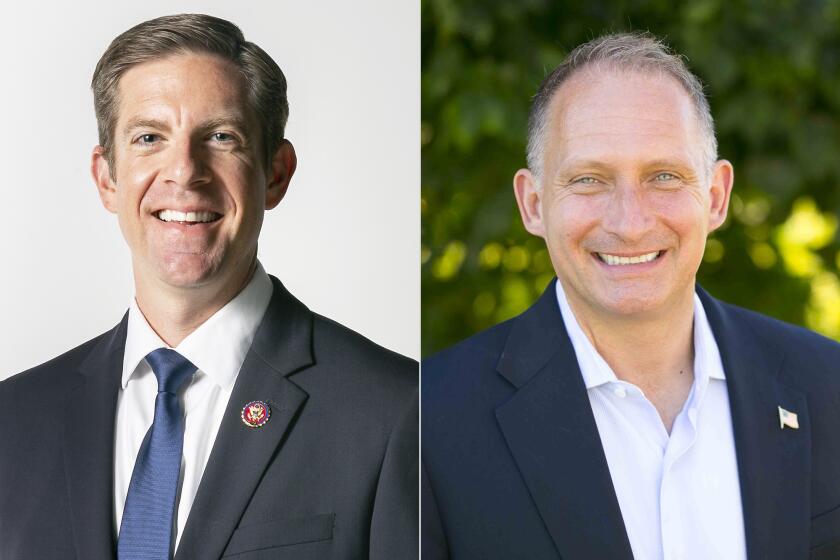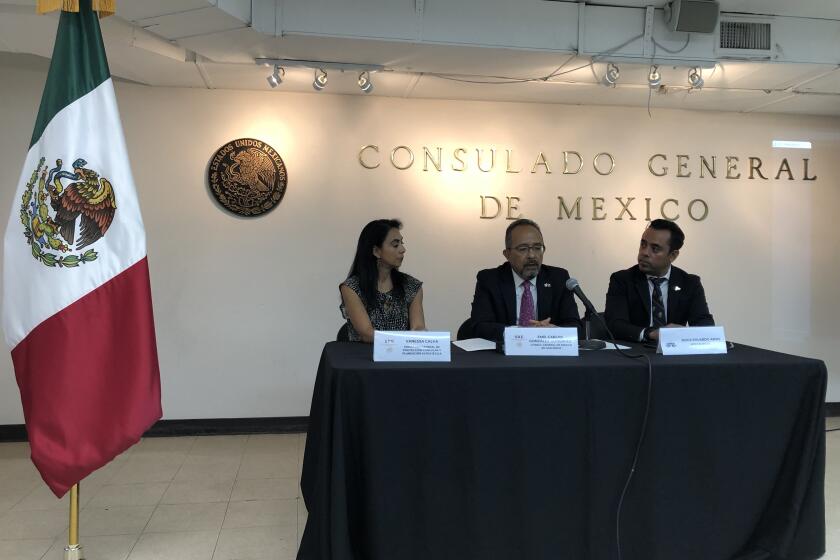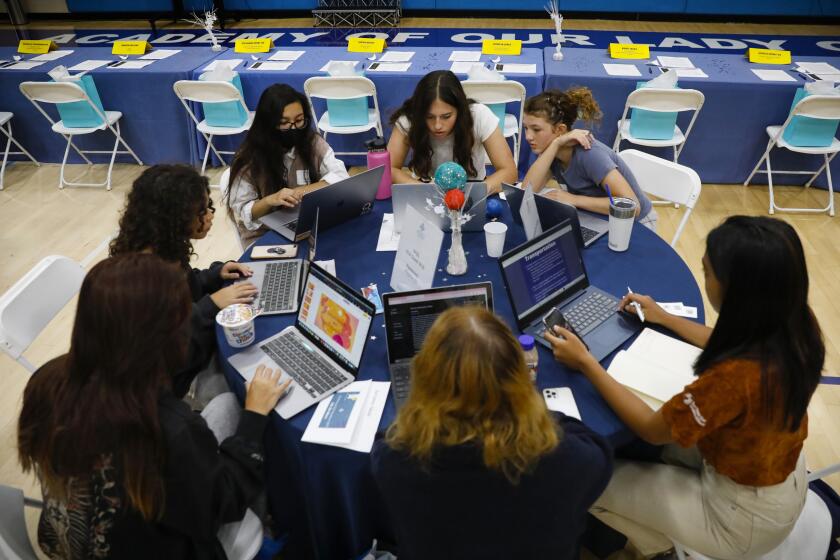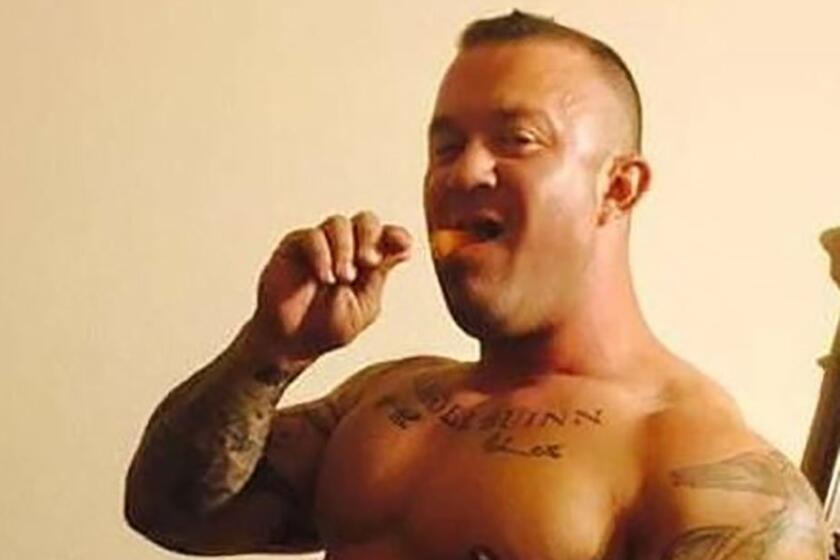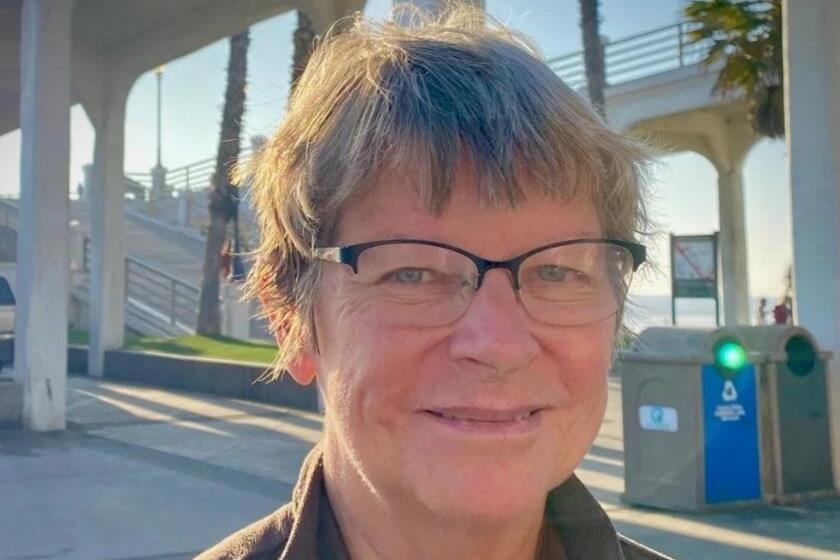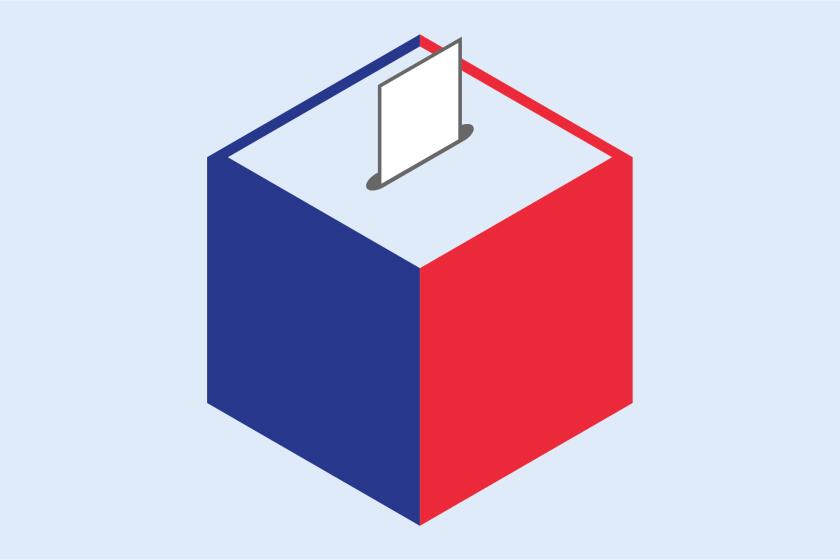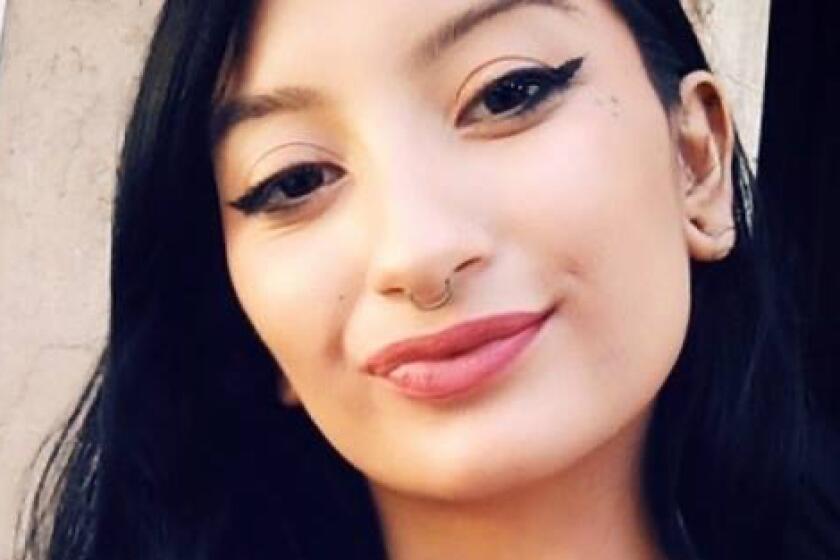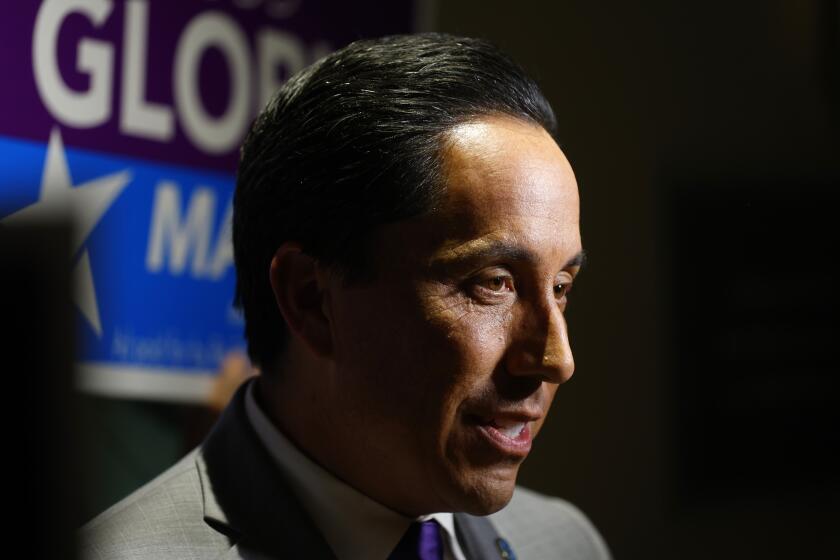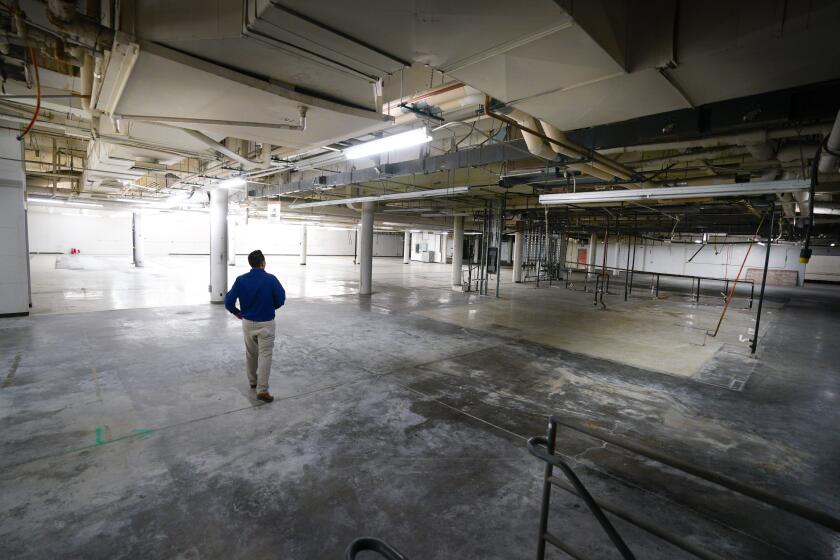Grand jury subpoena issued in Rep. Duncan Hunter criminal investigation
A federal grand jury is slated to hear evidence this month regarding certain transactions in Rep. Duncan Hunter’s campaign treasury, which has been under scrutiny since the spring of 2016 as a result of frequent personal expenditures.
A subpoena dated Dec. 21 was issued by the U.S. District Court in San Diego to a business in Hunter’s congressional district. The subpoena commanded the witness to appear before a grand jury in downtown San Diego later this month.
The San Diego Union-Tribune is withholding the name of the witness listed on the document, which was obtained from a third party on that condition. Federal Election Commission records show Hunter’s campaign spent thousands of dollars at the business in 2012 and 2014.
The subpoena orders the business to “provide any and all documents, to include itemized and signed receipts, event contracts, reservation/booking details, name(s) of guest(s) ... guest folios, photographs, social media postings and any form of communication associated with” six specific transactions in 2012.
Two of the transactions were attributed to Hunter, another two to his wife and former campaign manager, Margaret, and two to Bruce Young, the campaign’s treasurer in 2012. Investigators indicated that the business should produce records relating to those transactions dating back to Jan. 1, 2009.
The transactions are not among those that have come under scrutiny by the FEC and, subsequently, the Union-Tribune, which first raised questions about Hunter’s campaign spending in April 2016. Use of campaign contributions for personal benefit is forbidden by federal law to protect against undue influence by donors.
Hunter’s contributions are dominated by defense contractors and transportation companies whose businesses are affected by the committees on which he serves.
Hunter has denied intentional wrongdoing but has reimbursed his campaign for more than $60,000 of purchases including video games, oral surgery, groceries, garage door repair, family vacations, surfing equipment, dance recital trips, school lunches, school tuition and school uniforms.
Federal grand juries hold secret proceedings in which jurors hear evidence and testimony to decide if the accused should face criminal charges. If it decides there is sufficient evidence of crimes, it will hand down indictments.
Prosecutors, grand jurors, investigators, attorneys and others are forbidding to even confirm the existence of a grand jury or subpoenas. The law allows witnesses to disclose the existence of a grand jury, but courts typically request they not do so.
Greg Vega, one of the attorneys representing Hunter, declined to comment or answer questions for this article. Another of Hunter’s attorneys, Elliot Berke, did not respond to the Union-Tribune’s questions and request for comment.
Recently, Hunter has given radio and television news interviews in which he has sharply criticized the FBI and the Department of Justice and called into question its credibility and motives in his investigation.
During a television interview broadcast last week on KUSI, Hunter said, “I think that the Department of Justice is somewhat biased. There are individuals there, they like to make big cases, they like to do big things, it makes a name for them. I think that the longer they drag this out, the worse it is for me, and they know that. So let’s just get it over with.”
On Tuesday, Hunter said during a radio interview, “the Department of Justice and the FBI do not follow the same rules as normal Americans have to.”
He added, “There’s no oversight, and they can ruin your life and take you down if they feel like it.”
He said that there has been “illegality and even treasonousness at some points” in the two agencies’ activities related to President Donald Trump.
He said he has also been surprised by the agencies’ handling of his own criminal investigation.
“I mean, I guess it’s one of those things where unless it happens to you, you take for granted that the law enforcers are obeying the law, that they’re not biased, they’re not political, they don’t root for one presidential candidate over the other — or congressional candidate,” Hunter said. “But the reality is, I think it’s just like everything, you have people who are partisan, people that want to get famous, people that want to prosecute as opposed to finding justice, and that’s what you have. And those are the types of people unfortunately that rise to the top levels of these organizations like the FBI and the Department of Justice.”
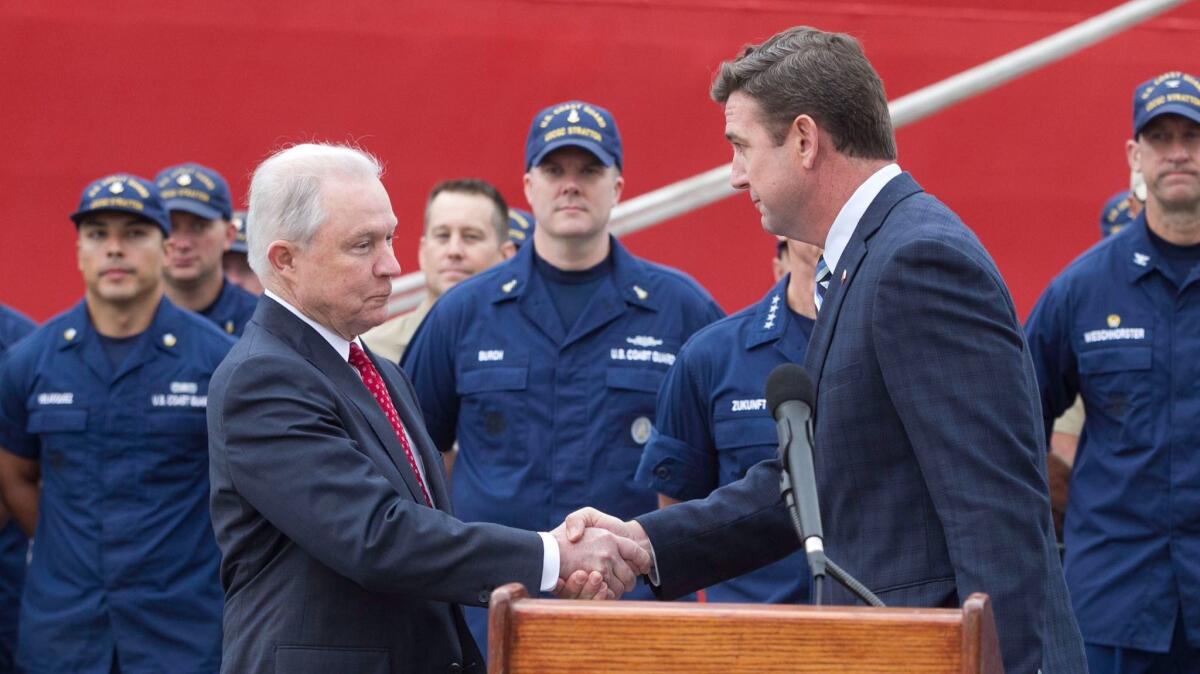
Hunter was previously more generous in his estimation of the law enforcement agencies. Hunter introduced Attorney General Jeff Sessions — head of the Department of Justice – at an appearance in San Diego in September involving cocaine and heroine seizures.
Hunter described Sessions as “a great man who is famous not just in Alabama but around the country for famously donning the Make America Great Again hat, and that’s what he’s doing. I would like to present to you our No. 1 law enforcement officer and the great attorney general of these United States of America, Jeff Sessions.”
Kelly Thornton, a spokeswoman for the U.S. Attorney’s Office in San Diego, declined to comment on the ongoing investigation or Hunter’s statements.
The Union-Tribune in April 2016 first questioned thousands of dollars in expenditures for video games and private school tuition, all of which Hunter’s campaign had reported on financial disclosures to the FEC.
In response to the Union-Tribune’s questions about the online video game charges, Hunter said his son had mistakenly used the campaign credit card instead of his personal card because both cards were blue.
Hunter attributed a minority of the charges to the mix-up, but said most were were a result of fraud involving the video game vendor and were later reversed.
Later in 2016, a Washington, D.C.-based ethics watchdog group, Citizens for Responsibility and Ethics in Washington, filed a complaint about Hunter’s spending with the Office of Congressional Ethics.
The office referred the matter to the U.S. House Committee on Ethics, which announced in March 2017 that it had unanimously voted to defer its own investigation of Hunter at the request of the Justice Department — indicating a criminal investigation was underway.
A search warrant that surfaced in August 2017 showed investigators were looking for evidence of fraud, falsified documents and conspiracy in addition to improper personal spending of political contributions, according to a search warrant affidavit. The warrant showed investigators were looking for evidence of bank fraud in connection with the video game charges. The document suggested federal agents are investigating whether the video game refunds were themselves obtained fraudulently.
That affidavit was filed to justify a February 2017 search of the offices of Hunter’s treasurer in Virginia.
This month’s interviews are not the first time Hunter has publicly criticized the handling of inquiries into his campaign spending.
In January 2017, Hunter supported a Republican-led proposal that would have made a procedural change stripping the Office of Congressional Ethics, an independent government watchdog agency, of much of its power. The congressmen dropped the effort after Trump and others questioned the timing of the proposed change.
Defending Hunter’s support of the proposal, Joe Kasper, who was at that time a staffer for Hunter’s office, gave an interview to the Press-Enterprise newspaper in which he criticized the Office of Congressional Ethics for over-reaching in its investigation of his campaign spending.
Kasper criticized the as-yet-unreleased ethics office report on Hunter, saying “findings or implications are significantly misrepresented or even exaggerated.”
As an example, Kasper mentioned the office’s questioning of the campaign’s use of $600 for airline fees to fly a Hunter family pet rabbit in the passenger cabin. Kasper said the fees were apparently charged to the campaign credit card by mistake, instead of using airline miles racked up on the campaign dime.
Kasper later said, “If Hunter had his way, [the rabbit] would have been used for soup.”
Previously: Hunter
- FEC questions Duncan Hunter’s video game charges
- Hunter to cut short Israel trip, repay campaign funds
- Congressman repays $12,000 to campaign
- Hunter repaid funds spent on surf shop, garage door
- Ethics complaints highlight Hunter’s Italy trip
- Hunter’s campaign spent on groceries, gas
- Did Hunter campaign pay for his kids’ school lunches?
- Hunter pushes Coast Guard to buy ship owned by donor
- Hunter’s campaign expenses detailed: Nail salon, dentist, more
- Congressman spent campaign funds for rabbit air travel
- Rep. Hunter mixed personal and campaign expenses, trips
- Justice Department investigating Rep. Duncan Hunter
- Group says Rep. Duncan Hunter is too close to the vaping industry, seeks ethics review
- Rep. Duncan Hunter reacts to FBI investigation: ‘Let’s just get it over with’
morgan.cook@sduniontribune.com
Get Essential San Diego, weekday mornings
Get top headlines from the Union-Tribune in your inbox weekday mornings, including top news, local, sports, business, entertainment and opinion.
You may occasionally receive promotional content from the San Diego Union-Tribune.


